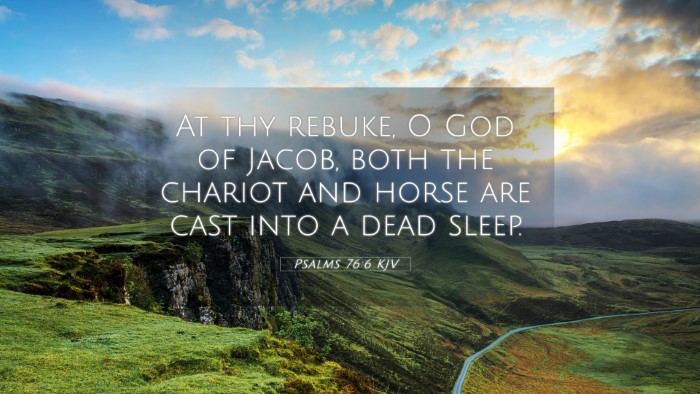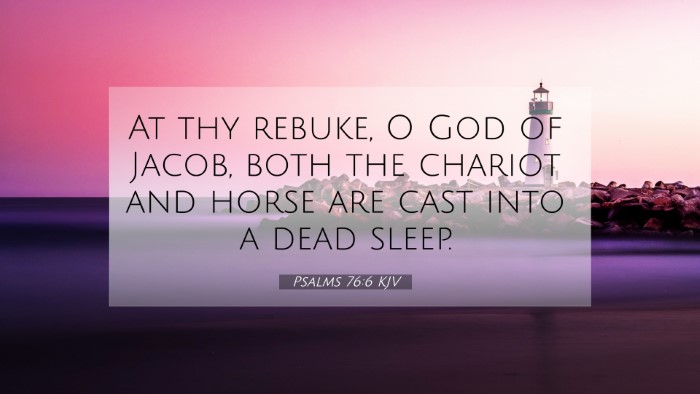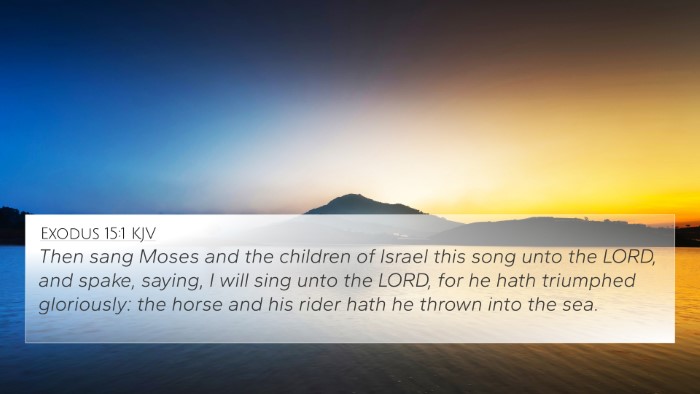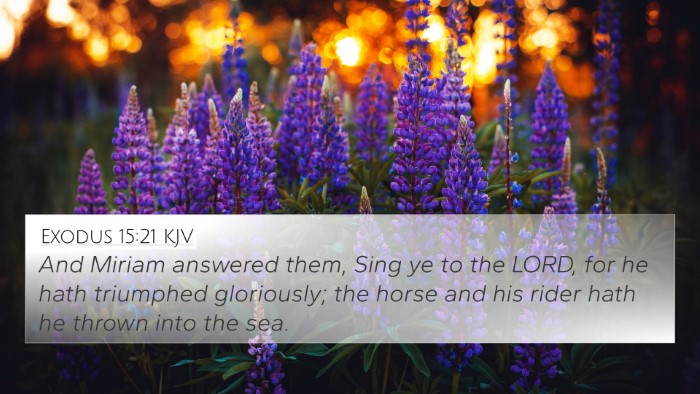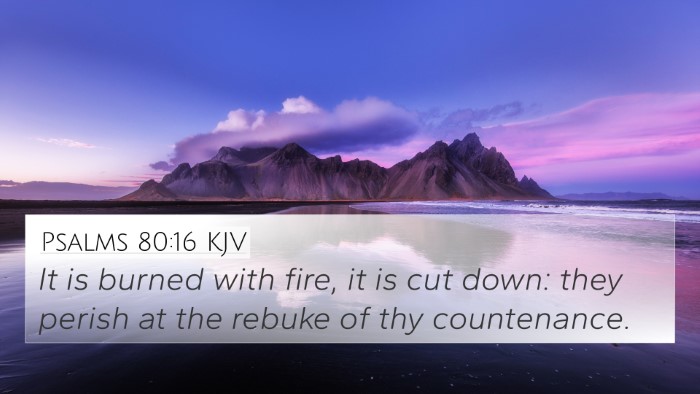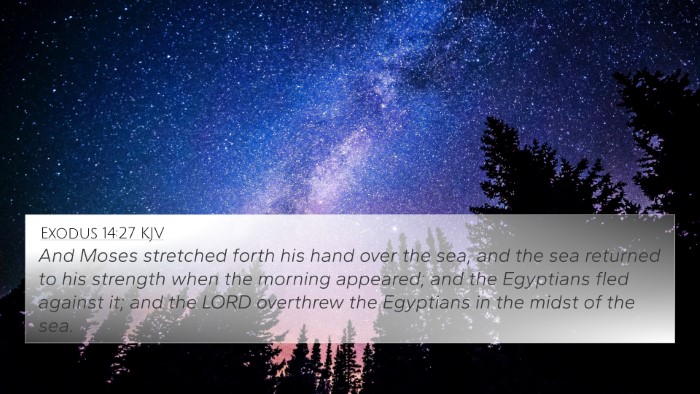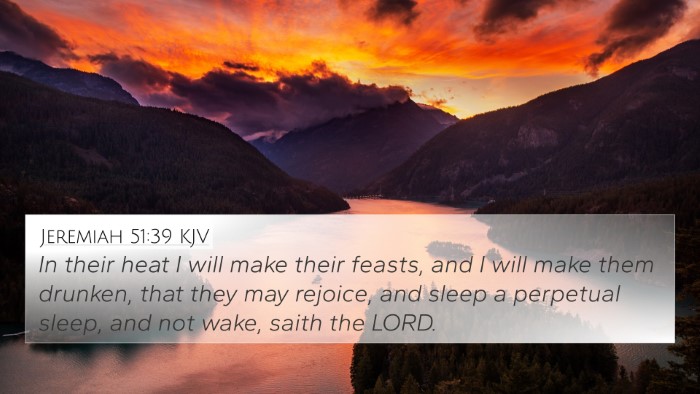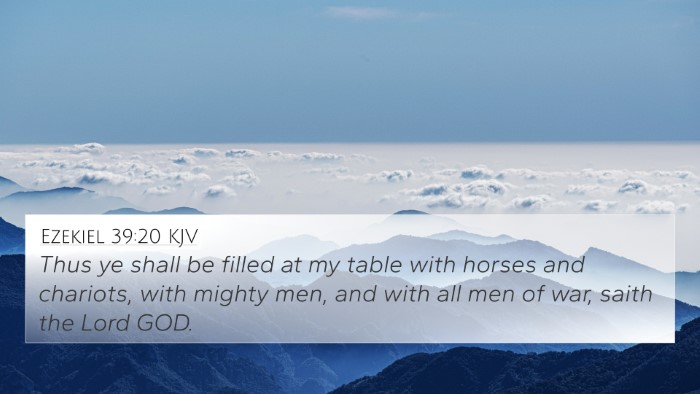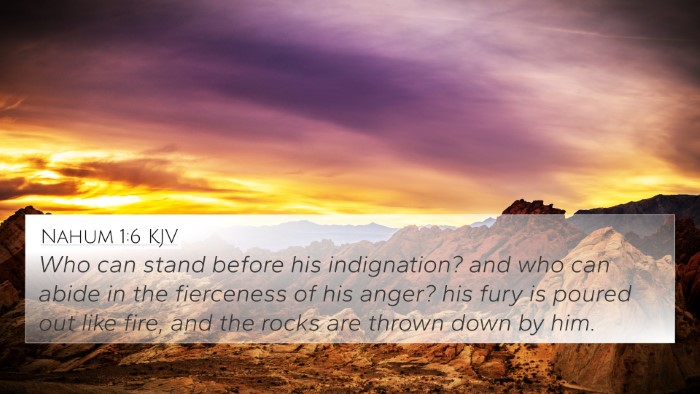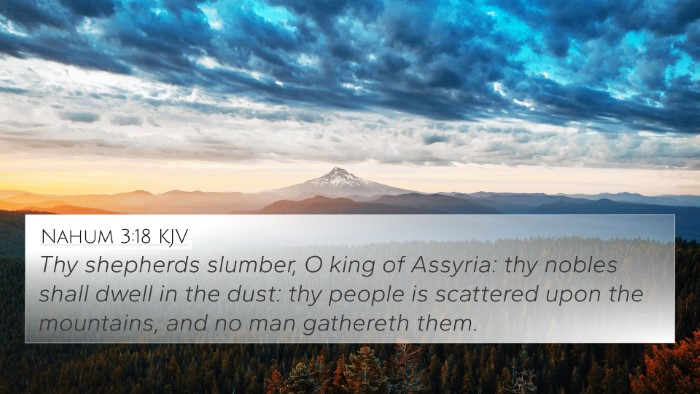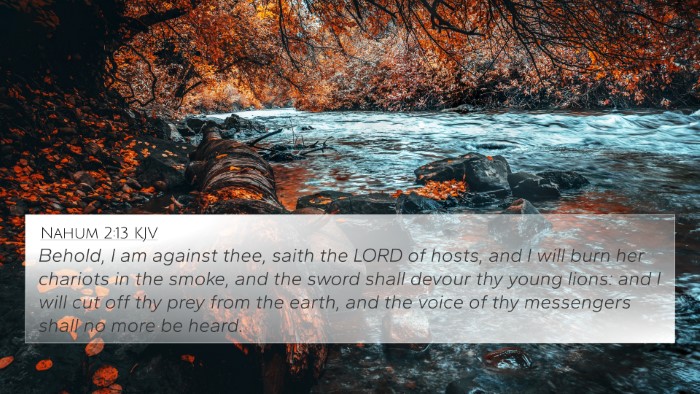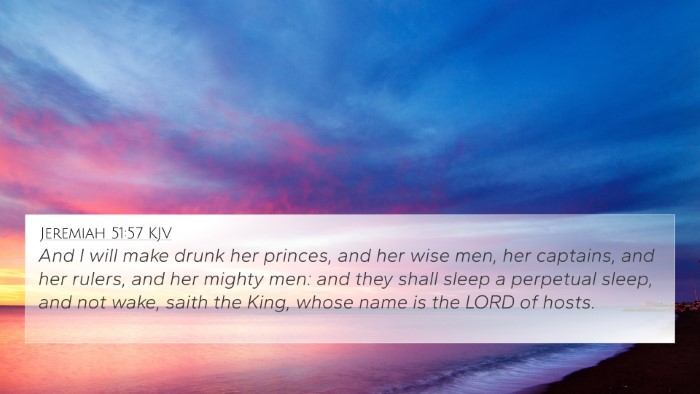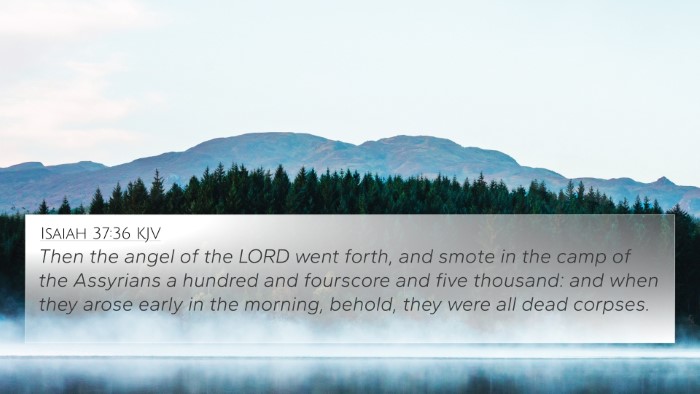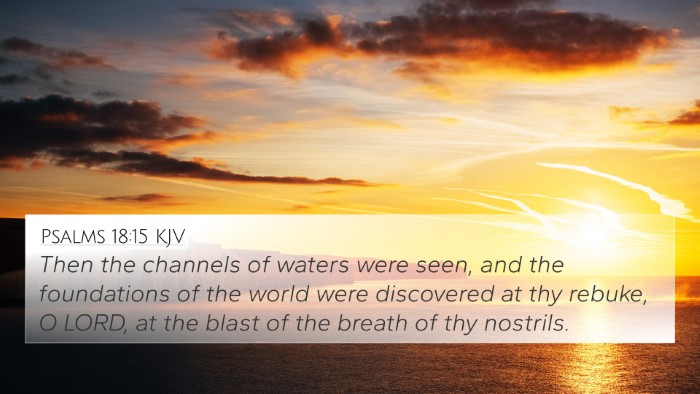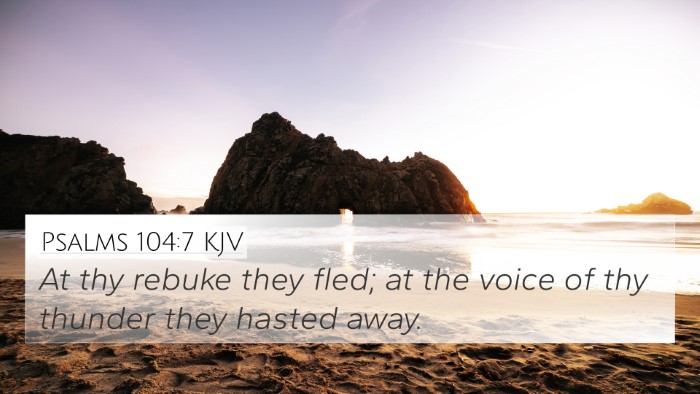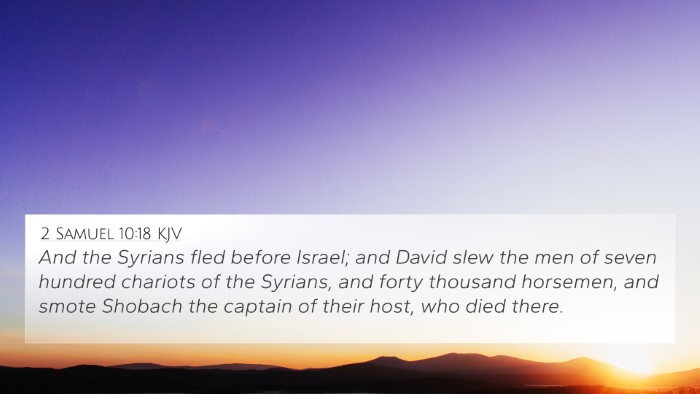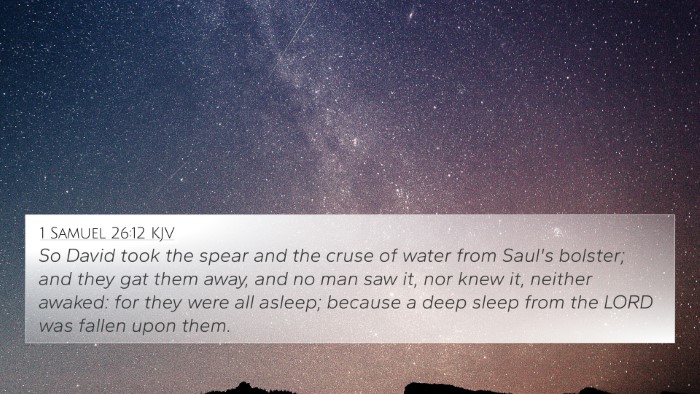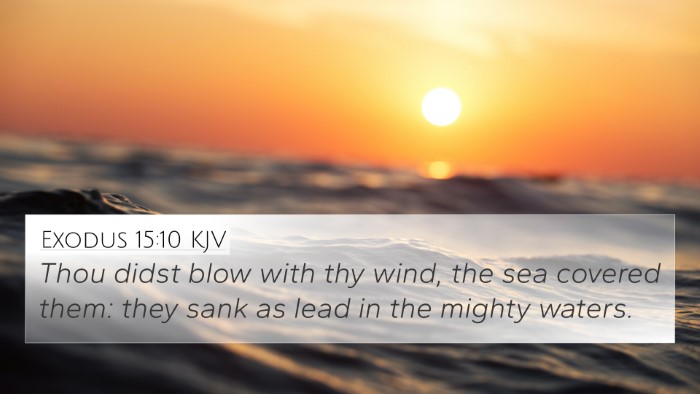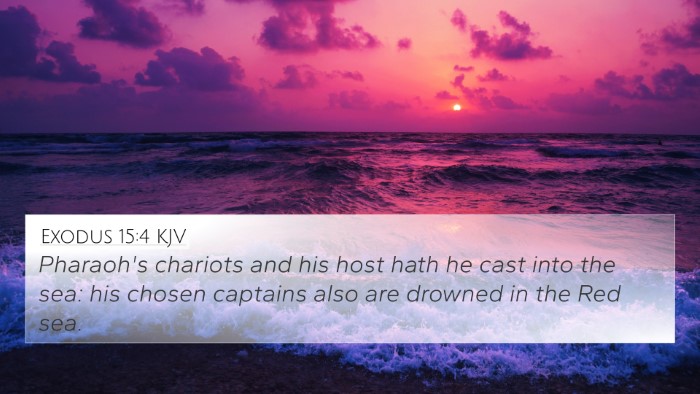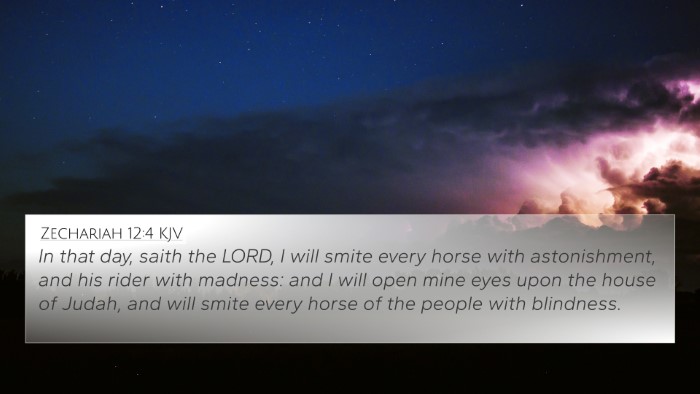Psalms 76:6 - Commentary and Meaning
Bible Verse: Psalms 76:6 - "At Your rebuke, O God of Jacob, both horse and chariot were cast into a deep sleep."
The verse from Psalms 76:6 speaks to the sovereignty of God over the forces of human power and military might. This passage illustrates a profound truth about God’s control over the natural and supernatural realm.
Understanding the Context
This psalm is often viewed as a celebration of God's might and His ability to subdue enemies. The historical context likely references a specific event where God delivered His people from overwhelming odds, emphasizing His role as protector and warrior.
Commentary Insights
-
Matthew Henry:
Matthew Henry emphasizes the idea that God's rebuke can lead to the downfall of the mightiest foes. The horses and chariots, symbols of strength and military power, are rendered ineffective and powerless before the Lord. He suggests that God uses His authority to bring peace and calm in tumultuous times.
-
Albert Barnes:
Barnes highlights the phrase "cast into a deep sleep," suggesting that God's intervention renders the enemy incapable of action. He draws parallels to divine judgment as a means to demonstrate God's supremacy and the fragility of human power in contrast to divine authority.
-
Adam Clarke:
Clarke elaborates on the metaphor of "deep sleep" as a state of total inactivity. He stresses that this deep sleep is akin to paralysis in the face of God's power. Clarke often references how historical military encounters confirmed this spiritual truth, reinforcing God's ultimate control over the events of history.
Key Themes and Cross-References
Psalms 76:6 links closely to numerous other verses throughout the Bible, illustrating the recurring themes of divine authority and deliverance:
- Psalm 33:10-11: "The Lord brings the counsel of the nations to nothing; He makes the plans of the peoples of no effect."
- Psalm 20:7: "Some trust in chariots, and some in horses; but we will remember the name of the Lord our God."
- Isaiah 31:1: "Woe to those who go down to Egypt for help and rely on horses." This verse warns against misplaced trust in human military strength.
- 2 Chronicles 20:15: "The battle is not yours, but God's." A direct insight into spiritual warfare and divine intervention in human conflicts.
- Exodus 14:14: "The Lord will fight for you, and you shall hold your peace." This verse echoes the theme of God's protective nature during battle.
- Romans 8:31: "If God is for us, who can be against us?" A statement emphasizing God's supremacy over adversaries.
- Revelation 19:11: "He who sat on the white horse is called Faithful and True, and in righteousness he judges and makes war." This highlights divine justice in confronting worldly powers.
- 1 Samuel 17:47: "For the battle is the Lord’s, and He will give you into our hands." This portrays the idea of reliance on God in battles against overwhelming odds.
- Hebrews 11:34: "Out of weakness were made strong." Reference to the faithful who relied on God and were empowered in situations where they seemed powerless.
- Psalms 47:3: "He will subdue the people under us, and the nations under our feet." Reinforcement of God’s authority over the nations.
Connections and Practical Applications
This verse serves as a powerful reminder that in times of trouble, when we might feel overwhelmed by circumstances, we can take solace in knowing that God is actively involved and sovereign over every situation.
How to Use Cross-References in Study
Cross-referencing can deepen your understanding of scripture. Here are some tools:
- Utilize a Bible concordance to find specific themes.
- Employ a Bible cross-reference guide for contextual insights.
- Consider cross-reference study methods for complex passages.
Inter-Biblical Dialogue
Engaging in an inter-Biblical dialogue, where one explores connections between Old Testament teachings and New Testament fulfillments, can reveal layers of meaning. For instance, understanding the implications of God as a warrior in the Old Testament can enhance our comprehension of Christ's peace offerings in the New Testament.
Conclusion
Psalms 76:6 encapsulates the theme of divine intervention and the futility of opposing God. The insights derived from public domain commentaries, paired with an exploration of cross-referenced scriptures, illustrate a holistic understanding of the text. By linking this verse to others, we can better grasp the depth of God's authority and His protective nature over His people.

